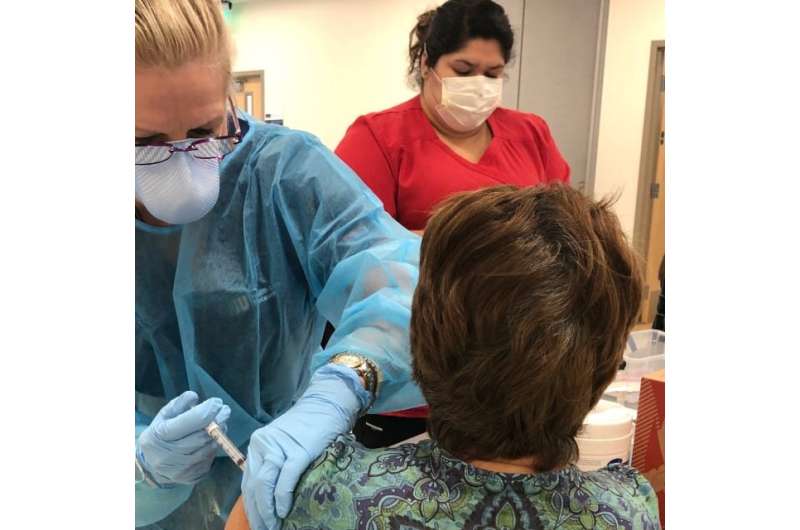What’s the difference between a COVID-19 booster shot and a third dose?


COVID-19 vaccine choices are getting more complicated. So don’t feel bad if you are confused about the different COVID-19 vaccines and who’s eligible for what. In addition to the three original vaccines approved by the Food and Drug Administration—Pfizer, Moderna, and Johnson & Johnson—booster shots and third doses are now available. But they are not for everyone. And they are not the same thing.
Dr. Eneida Roldan, FIU Health CEO and clinical director of FIU’s vaccine initiative, explained the difference between the new shots.
“A booster shot is for people whose immune response may have weakened over time,” Roldan said. “A third dose is for people who may not have had a strong enough immune response from the first two doses.” Consult your health care provider about which might be right for you.
Here are some guidelines on eligibility from the Centers for Disease Control and Prevention (CDC).
Booster shot: Pfizer only
The Federal Drug Administration (FDA) has only approved booster shots for the Pfizer vaccine.
Who is eligible for a booster?
- Only people initially vaccinated with Pfizer can get the booster. And they must have completed their initial vaccination series at least 6 months ago.
- 65 years and older
- 18+ years living in a long-term setting
- 18+ years with underlying medical conditions including cancer, chronic liver, and kidney disease, weakened immune system. The CDC has a complete list of eligible conditions.
- 18+ years who live or work in high-risk settings including health care, schools, correctional facilities, homeless shelters.
Third dose- Pfizer and Moderna
Third doses have been approved only for the Pfizer and Moderna vaccines. “You need to get the same vaccine for all three doses. And you need to wait at least 28 days after your second dose,” Roldan said.
Who is eligible for a third dose?
People with moderately to severely compromised immune systems. This includes people undergoing cancer treatment, organ or stem cell transplant recipients who take medicine to suppress the immune system, and people with immunodeficiency diseases.
Why get these additional shots?
The CDC says, “an additional dose may prevent serious and possibly life-threatening COVID-19 in people who may not have responded to their initial vaccine series.”
There is no approved booster shot or third dose for the Johnson & Johnson vaccine. However, on Oct. 5, the company asked the FDA to authorize boosters for people who received its one-shot vaccine.
Who is eligible for the initial COVID-19 vaccines?
Source: Read Full Article